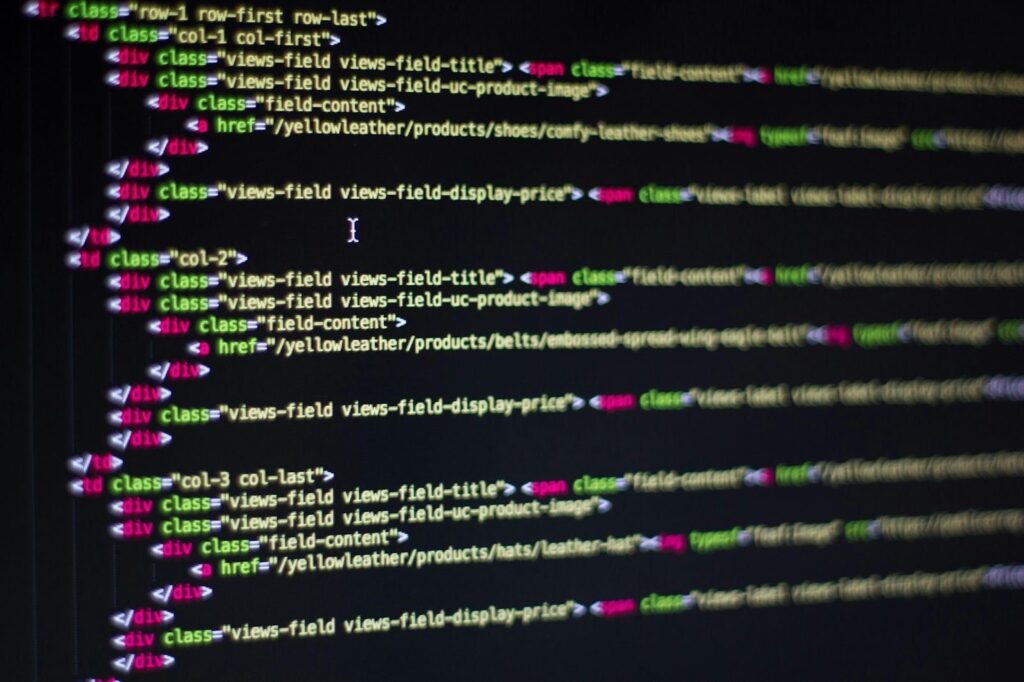In today’s rapidly changing business landscape, understanding the preferences and needs of the millennial generation is crucial for organizations looking to attract and retain talented individuals. As the largest generation in the workforce, millennials bring a unique perspective and set of values that greatly influence workplace culture. In this article, we will explore key characteristics of millennials, compare their preferences to previous generations, analyze the importance of workplace culture for millennials, and discuss strategies for adapting workplace culture to meet millennial needs.

Understanding Millennials: A Brief Overview
The millennial generation, typically defined as those born between the early 1980s and late 1990s has grown up in a digital age characterized by rapid technological advancements and global connectivity. This has shaped their values, beliefs, and behaviors in the workplace.
Millennials, also known as Generation Y, are often characterized as tech-savvy, diverse, and socially conscious. They have been exposed to technology from a young age, growing up with the internet, smartphones, and social media. This constant exposure to technology has not only influenced their communication style but has also shaped their approach to work and life.
One key characteristic of millennials is their value of transparency. They appreciate open and honest communication in the workplace, and they expect the same level of transparency from their employers. This desire for transparency extends beyond the workplace and into their personal lives as well. Millennials are more likely to share personal experiences and opinions on social media platforms, seeking authenticity and connection.
Collaboration is another important value for millennials. They thrive in environments that foster teamwork and encourage diverse perspectives. This generation grew up in a time when globalization was on the rise, and they understood the importance of working together to solve complex problems. They value diversity and inclusion, recognizing that different backgrounds and perspectives can lead to innovative solutions.
Meaningful work is a priority for millennials. They want to feel like they are making a difference and contributing to a larger purpose. This generation is less motivated by traditional markers of success, such as wealth and status, and more focused on finding fulfillment in their work. They are more likely to seek out job opportunities that align with their values and allow them to make a positive impact on society.
Work-life balance is another key consideration for millennials. They prioritize their personal lives and well-being, seeking a harmonious integration of work and leisure. This generation values flexibility and autonomy in their work arrangements, often preferring remote work options or flexible schedules. They understand the importance of caring for their mental and physical health and strive to create a balanced lifestyle.
Continuous learning and development are also important to millennials. They have grown up in a time of rapid technological advancements, where skills quickly become outdated. As a result, they place a strong emphasis on ongoing learning and professional growth. Millennials are more likely to seek out opportunities for training and development, whether through formal education, online courses, or mentorship programs.
The Millennial Generation: Key Characteristics
Millennials are often characterized as tech-savvy, diverse, and socially conscious. They value transparency, collaboration, and meaningful work. Additionally, millennials place a strong emphasis on work-life balance, personal fulfillment, and continuous learning and development.
One aspect of millennial culture that sets them apart is their affinity for technology. Growing up in a digital age, millennials are comfortable with technology and often rely on it for various aspects of their lives. They are early adopters of new gadgets and apps, constantly seeking out the latest advancements to enhance their productivity and connectivity.
Millennials are also known for their diversity. This generation is more racially and ethnically diverse than previous generations, reflecting the increasing multiculturalism of society. They embrace diversity and are more likely to appreciate and celebrate different cultures and perspectives. This diversity brings a richness of ideas and experiences to the workplace, fostering creativity and innovation.
Another important characteristic of millennials is their social consciousness. This generation is deeply concerned about social and environmental issues. They are more likely to support companies and brands that align with their values and contribute to positive change. Millennials are active participants in social causes, using social media platforms to raise awareness and mobilize support for various issues.
Millennials vs. Previous Generations: A Comparative Analysis
Compared to previous generations, millennials tend to prioritize experiences and purpose over traditional markers of success. They are more likely to value a supportive and inclusive work environment, seek out growth opportunities, and expect feedback and recognition for their efforts.
Unlike previous generations, millennials are less motivated to climb the corporate ladder and accumulate wealth. They value experiences over material possessions and are more likely to spend their money on travel, dining out, and other memorable activities. This focus on experiences stems from their desire to create meaningful memories and live life to the fullest.
Millennials also have different expectations when it comes to work. They seek out workplaces that prioritize employee well-being and offer opportunities for personal and professional growth. Millennials value feedback and recognition for their contributions, and they appreciate workplaces that provide regular performance evaluations and opportunities for skill development.
Compared to previous generations, millennials are more likely to switch jobs if they feel their current position does not align with their values or provide growth opportunities. They are not afraid to take risks and explore different career paths in search of personal fulfillment. This willingness to change jobs frequently has led to the perception that millennials are job-hoppers, but in reality, they are driven by a desire for continuous learning and a sense of purpose in their work.
In conclusion, understanding millennials requires recognizing their unique characteristics and values. This generation has been shaped by technology, diversity, and a strong sense of social consciousness. They prioritize transparency, collaboration, meaningful work, work-life balance, continuous learning, and development. By understanding and embracing these values, organizations can create environments that attract and retain millennial talent.

The Importance of Workplace Culture for Millennials
Workplace culture plays a significant role in shaping millennial employee satisfaction, engagement, and retention. A positive and inclusive culture can foster a sense of belonging, purpose, and well-being, while a negative culture can lead to disengagement and turnover.
Millennials, born between 1981 and 1996, are the largest generation in the workforce today. They bring with them unique values, expectations, and priorities. As digital natives, they are accustomed to constant connectivity and seek workplaces that align with their personal beliefs and values.
One of the key factors that millennials prioritize is job satisfaction. Unlike previous generations, they are more likely to prioritize job satisfaction over financial compensation. They seek out organizations that not only offer competitive salaries but also align with their values, provide opportunities for growth and development, and allow them to make a meaningful impact.
The Role of Workplace Culture in Job Satisfaction
A positive workplace culture that values work-life balance offers support and recognition, and promotes a healthy work environment can greatly contribute to millennial job satisfaction. When millennials feel supported and valued, they are more likely to be engaged, productive, and committed to their work.
Organizations that prioritize workplace culture understand the importance of creating a positive and inclusive environment. They invest in programs and initiatives that promote employee well-being, such as flexible work arrangements, wellness programs, and mentorship opportunities. By doing so, they not only attract top millennial talent but also retain them in the long run.
How Workplace Culture Impacts Millennial Employee Retention
High turnover among millennials can be costly for organizations, both in terms of recruitment and training expenses. However, by creating a culture that fosters engagement, learning, and development, organizations can improve millennial employee retention.
Workplace culture can impact retention by providing the necessary support, opportunities for growth, and a sense of community that millennials are seeking. Millennials value continuous learning and development, and organizations that invest in their employees’ professional growth are more likely to retain them.
Furthermore, millennials place a high emphasis on work-life balance. They value workplaces that prioritize their well-being and offer flexibility in terms of working hours and remote work options. Organizations that understand and accommodate these preferences are more likely to retain millennial employees.
In conclusion, workplace culture plays a crucial role in shaping millennial employee satisfaction, engagement, and retention. Organizations that prioritize creating a positive and inclusive culture are more likely to attract and retain top millennial talent. By investing in workplace initiatives that align with millennials’ values and priorities, organizations can create an environment where millennials thrive and contribute to the overall success of the organization.
Millennial Preferences in Workplace Culture
Understanding and addressing millennial preferences in workplace culture is essential for organizations to attract and retain this generation’s talent. Let’s explore three key preferences that often resonate with millennials.
The Desire for Flexibility and Work-Life Balance
Millennials place a high value on work-life balance and flexibility. They seek opportunities for remote work, flexible schedules, and the ability to integrate personal and professional responsibilities. Organizations can accommodate this preference by implementing flexible work arrangements, such as compressed workweeks or remote work policies.
The Value of Collaboration and Teamwork
Millennials thrive in collaborative work environments where they can contribute their skills and ideas. They appreciate opportunities for teamwork, mentorship, and cross-functional collaboration. Organizations can foster a collaborative culture by providing open communication channels, cross-departmental projects, and mentorship programs.
The Need for Continuous Learning and Development Opportunities
Millennials have a strong desire for continuous learning and growth. They prioritize opportunities to enhance their skills, learn new technologies, and advance their careers. Organizations can meet this need by offering training programs, mentorship initiatives, and providing clear paths for advancement and skill development.
Adapting Workplace Culture to Meet Millennial Needs
To attract and retain millennial talent, organizations must adapt their workplace culture to align with their preferences. Here are three strategies to consider:
Implementing Flexible Work Arrangements
Organizations can introduce flexible work arrangements, such as flexible schedules, remote work options, and result-oriented work environments. This allows millennials to achieve work-life balance while maintaining productivity and performance.
Fostering a Collaborative Environment
Creating a collaborative work environment involves promoting open communication, encouraging teamwork, and providing opportunities for cross-departmental collaboration. This can help millennials feel valued, engaged, and connected to their colleagues.
Providing Opportunities for Growth and Development
Organizations can support millennial employees’ desire for continuous learning and development by offering training programs, mentorship opportunities, and clear paths for advancement. This cultivates a culture of growth and demonstrates the organization’s commitment to employee success.
The Impact of Millennial-Driven Workplace Culture
A workplace culture that meets millennial preferences can yield numerous benefits for the organization and its employees.
Benefits for the Organization
Organizations that successfully align their workplace culture with millennial preferences can experience improved employee satisfaction, increased productivity, enhanced innovation, and higher employee retention rates. By attracting and retaining millennial talent, organizations can gain a competitive advantage in today’s talent-driven marketplace.
Challenges and How to Overcome Them
Adapting workplace culture to meet millennial needs may present challenges for organizations. Resistance to change, generational differences, and potential conflicts between traditional practices and millennial preferences are some common obstacles. To navigate these challenges, organizations should focus on open communication, fostering understanding, and finding common ground to create a culture that benefits all employees.
Conclusion
In conclusion, understanding and addressing the cultural preferences of millennials is pivotal for organizations looking to thrive in the modern workplace. By recognizing the key characteristics of millennials, acknowledging their unique preferences, and adapting workplace culture to meet their needs, organizations can attract and retain top millennial talent. Embracing millennial-driven workplace culture not only benefits individual employees but also fosters a positive and productive work environment for all.
